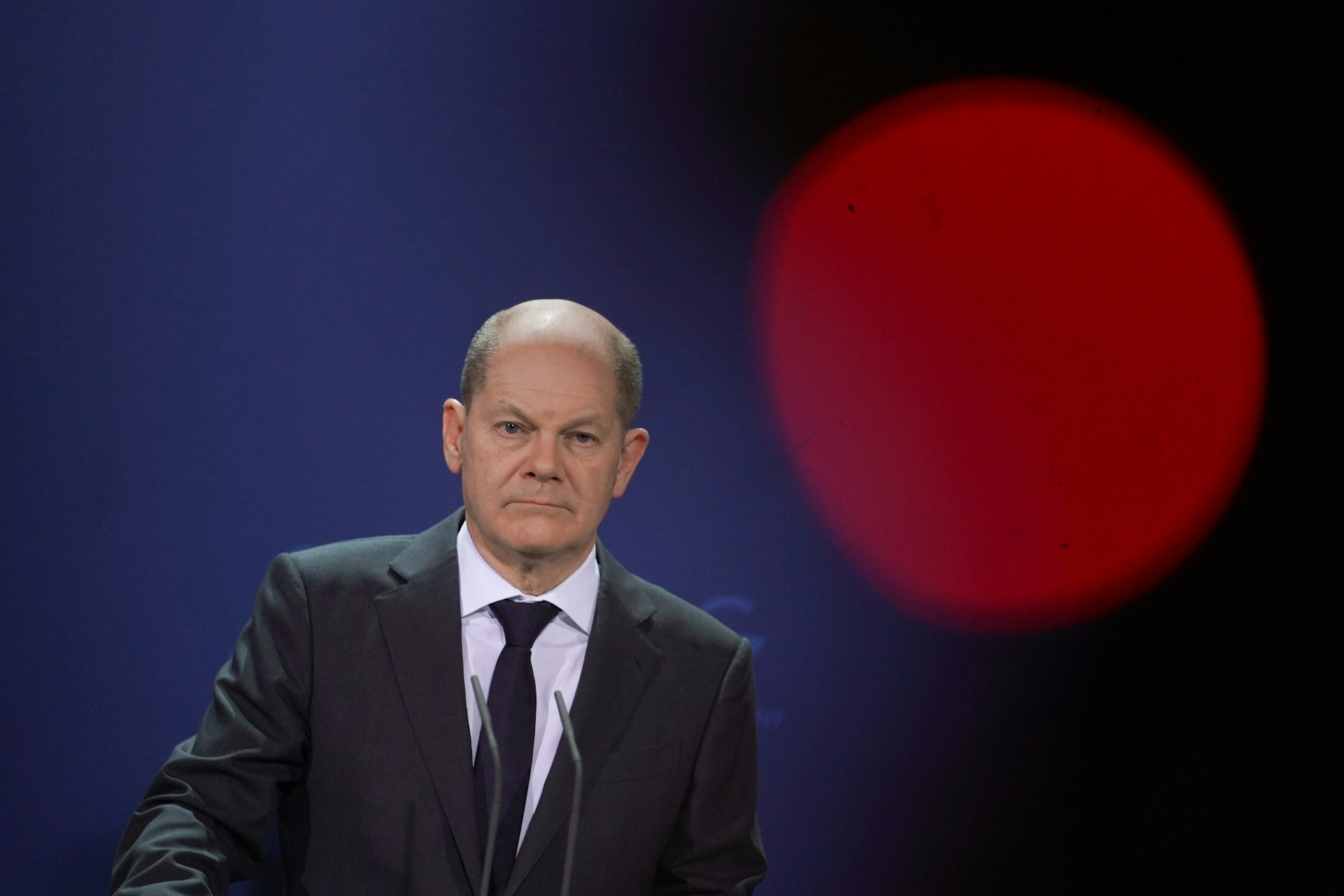Germans Are Split Over How to Deal With Russia’s Ukraine Demands

Key Takeaways
As sky-high energy prices inflict financial hardship, German adults are split down the middle over calls to cancel the Nord Stream 2 gas pipeline if Russia again invades Ukraine, with 37% in favor and 37% opposed.
Pluralities of adults in NATO partner countries such as Canada, France, Italy and the United Kingdom support canceling the project, but many are unsure.
Similarly, 28% of Germans said NATO should agree to Russia’s demands to promise Ukraine won’t join the security pact — the highest share among all countries polled — even as 30% said NATO should hold its ground.
As NATO places troops on high alert and braces for a Russian invasion of Ukraine, Morning Consult polling shows widespread support among major NATO countries for imposing sanctions on Moscow in the event of a conflict. Yet German adults were crucially split down the middle over canceling the Nord Stream 2 gas pipeline as part of those sanctions, as well as over whether NATO should heed Russia’s demands to prohibit Ukraine from ever joining the alliance.
That puts German Chancellor Olaf Scholz in a bind as he attempts to balance public opinion and divisions within his own government against allied pressure to present a united front.
Proposed Nord Stream 2 Sanctions Split Germans
German families are currently paying high prices for natural gas, which is widely used to heat homes, and imposing further financial hardships on constituents is not an appetizing prospect for the Scholz government. In fact, his coalition split internally last week over the issue.
Shaky foundations
Germans were also narrowly divided over whether to concede to Russian demands to promise that Ukraine will never be accepted into NATO, and were the most likely among all countries surveyed to say the alliance should give in to Moscow’s demand.
Many Don’t Know How NATO Should Deal With Russia’s Ukraine Demands
NATO diplomats have characterized any such promise as impossible and contradictory to the founding principles of the alliance — even though there’s no consensus inside the organization over letting Ukraine in. It is perhaps not surprising Germans were least likely to support extending a theoretical political fig leaf to Kyiv when doing so might mean they can’t warm their homes.
The rank and file of other major NATO players seem less than gung-ho about committing to the ideological foundations of NATO, too, with at least a slim majority of adults in Canada, France and Italy saying they either had no opinion or didn’t know whether insisting on Kyiv’s right to join the alliance was the right move.
Germans still oppose Russian influence
Despite their aversion to turning off the gas spigots to punish Moscow, nearly 2 in 3 Germans (63 percent) said they thought Russia should have little or no influence in neighboring states like Ukraine, Georgia or Kazakhstan — the highest proportion among all countries surveyed.
Germans Overwhelmingly Oppose Russian Hopes for ‘Sphere of Influence’
The question for Scholz is whether to risk his coalition shattering under the hammer of public opinion in favor of the broader desires of NATO and the United States to punish Russia if it were to invade, or to challenge his country’s most important allies and let the Russian gas flow.
The polls were conducted Jan. 20-25, 2022, among a representative sample of 1,000 adults in Canada, France, Germany, Italy and the United Kingdom, with an unweighted margin of error of plus or minus 3 percentage points.
Matthew Kendrick previously worked at Morning Consult as a data reporter covering geopolitics and foreign affairs.
Related content

As Yoon Visits White House, Public Opinion Headwinds Are Swirling at Home

The Salience of Abortion Rights, Which Helped Democrats Mightily in 2022, Has Started to Fade
